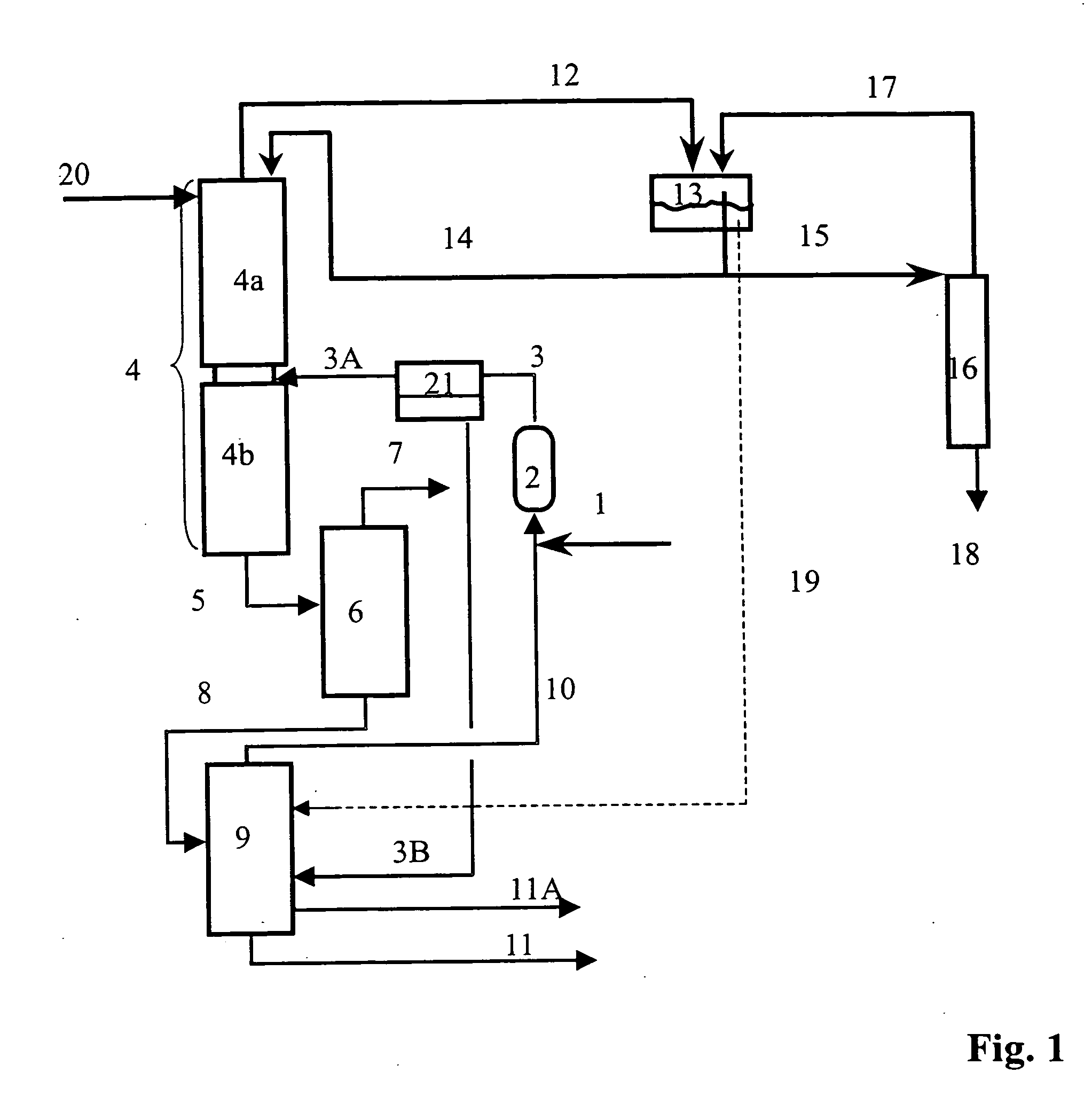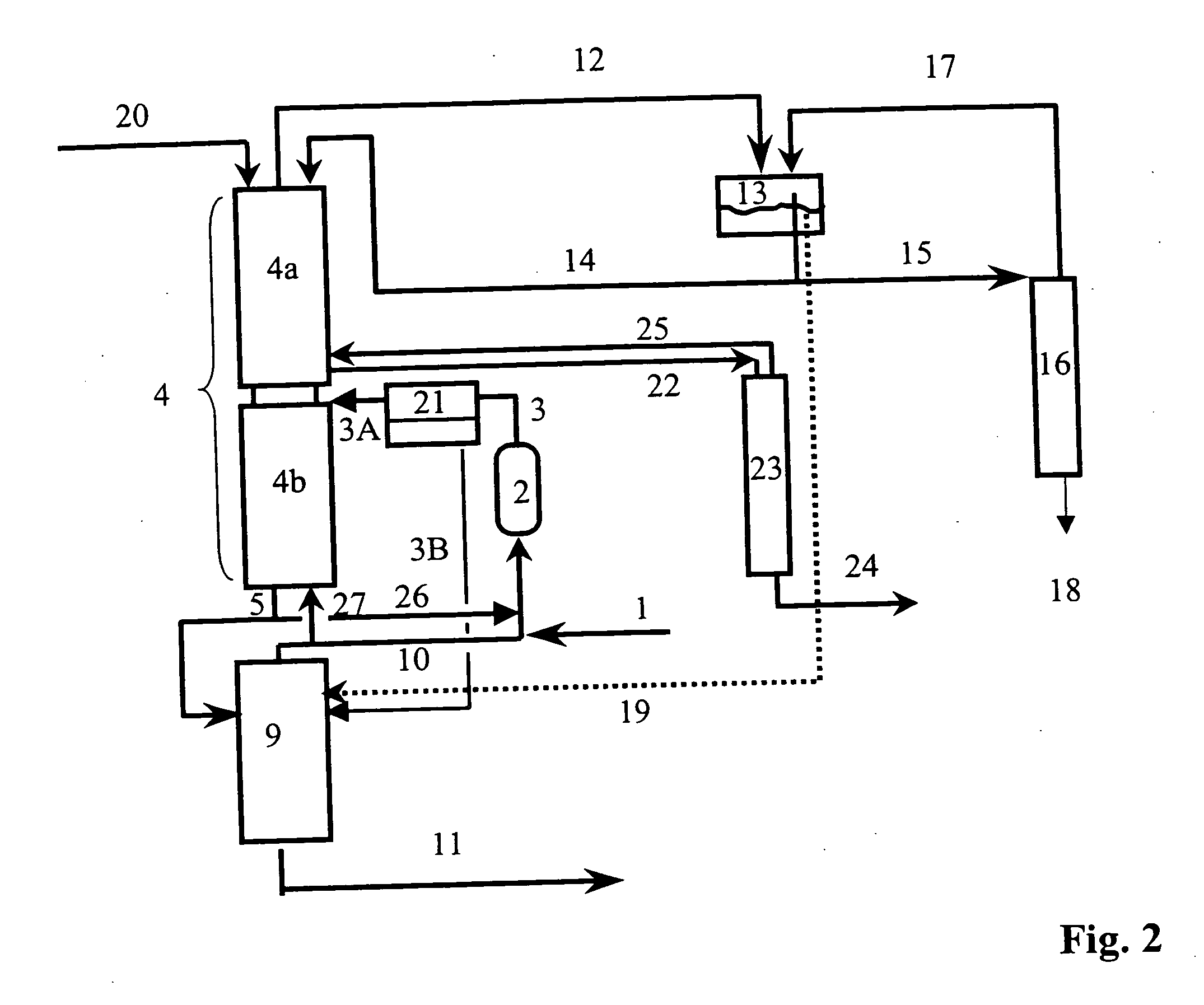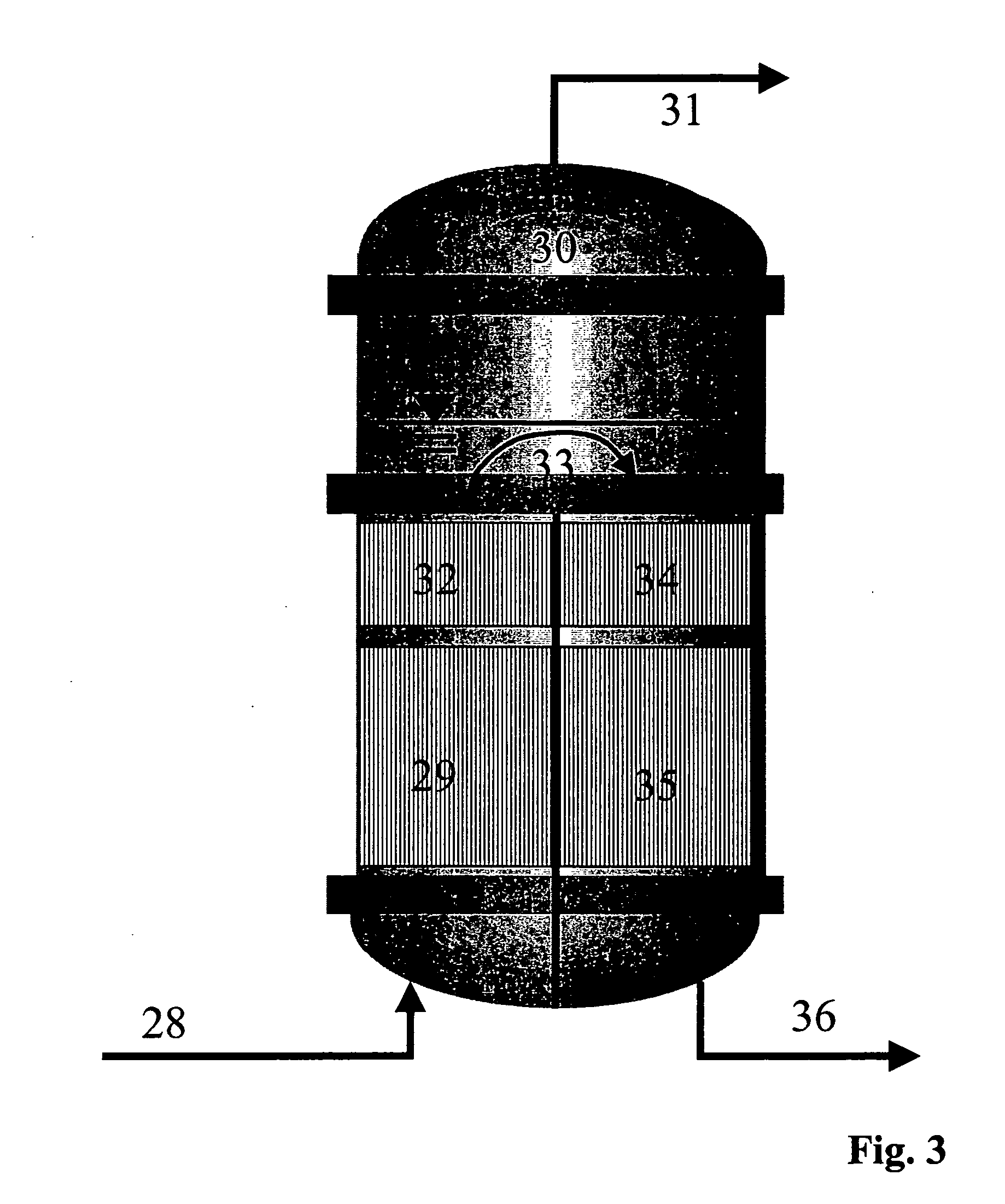Process for preparing isobutene from tert-butanol
a technology of tert-butanol and isobutene, which is applied in the direction of organic compound/hydride/coordination complex catalyst, physical/chemical process catalyst, instrument, etc., can solve the problems of short operating life, inability to economically separate isobutene from these mixtures, and formation of by-products
- Summary
- Abstract
- Description
- Claims
- Application Information
AI Technical Summary
Benefits of technology
Problems solved by technology
Method used
Image
Examples
example 1
Prophetic Example
[0100] The preparation of isobutene is carried out in a plant of the type shown in FIG. 1 and FIG. 5, with the particular feature that no removal of water using the module (21) is carried out and the streams 3 and 3A therefore has the same composition. The fresh water stream (20) and the wastewater stream (3B) are dispensed with. The wastewater stream (19) is disposed of directly.
[0101] The reaction section (2) is in two stages as shown in FIG. 5. The reactor (29) is a laboratory tube reactor operated isothermally at 120° C. and having a catalyst volume of about 310 ml. Amberlyst 15 is used as catalyst. The second reactor (35) is likewise a laboratory tube reactor operated isothermally at 120° C. and having a catalyst volume of about 310 ml. Amberlyst 15 is likewise used as catalyst. A heatable vessel is used for intermediate vaporization.
[0102] The diameter of the columns (4), (6), (9) and (16) is in each case 50 mm. Random metal packing elements are used. About...
example 2
Prophetic Example
[0105] The preparation of isobutene is carried out in a plant of the type shown in FIG. 1, with the particular feature that no removal of water by means of the module (21) is carried out and the streams 3 and 3A therefore have the same composition. The fresh water stream (20) and the wastewater stream (3B) are dispensed with. The wastewater stream (19) is disposed of directly.
[0106] The reaction section (2) is configured as a single stage. The reactor (2) is a laboratory tube reactor operated isothermally at 120° C. and having a catalyst volume of about 285 ml. Amberlyst 15 is used as catalyst. The diameter of the columns (4), (6), (9) and (16) is in each case 50 mm. Metal packing elements (Pall rings) are used in each case. About 30 theoretical plates are installed in column (4), and the reactor output (3) is fed in on the 20th theoretical plate counted from the top. The runback (14) is introduced at the top of the column on plate 1. About 18 theoretical plates a...
PUM
| Property | Measurement | Unit |
|---|---|---|
| Temperature | aaaaa | aaaaa |
| Temperature | aaaaa | aaaaa |
| Fraction | aaaaa | aaaaa |
Abstract
Description
Claims
Application Information
 Login to View More
Login to View More - R&D
- Intellectual Property
- Life Sciences
- Materials
- Tech Scout
- Unparalleled Data Quality
- Higher Quality Content
- 60% Fewer Hallucinations
Browse by: Latest US Patents, China's latest patents, Technical Efficacy Thesaurus, Application Domain, Technology Topic, Popular Technical Reports.
© 2025 PatSnap. All rights reserved.Legal|Privacy policy|Modern Slavery Act Transparency Statement|Sitemap|About US| Contact US: help@patsnap.com



